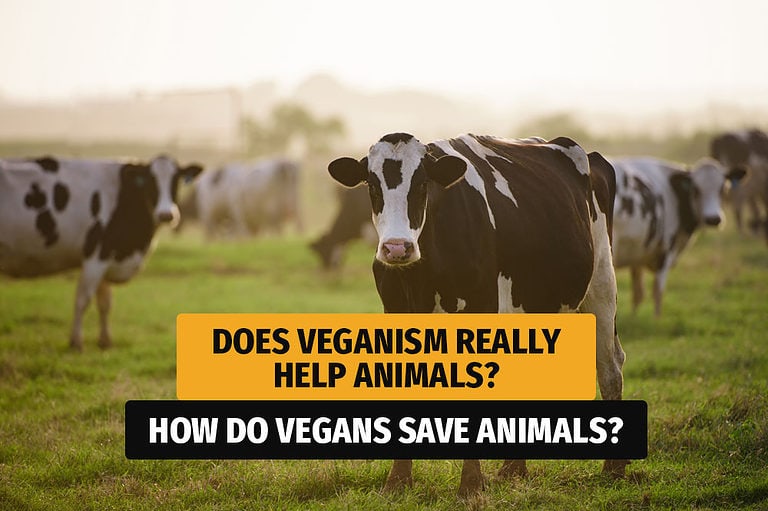
Have you ever wondered how veganism began? Why do people choose to follow a plant-based diet and avoid animal products altogether? The roots of veganism can be traced back to ancient civilizations, where people chose to abstain from meat for religious or ethical reasons. However, the modern vegan movement as we know it today has its origins in the mid-20th century.
In the 1940s, a group of vegetarians in the UK formed the Vegan Society, coining the term “vegan” to describe their lifestyle. They believed that vegetarianism alone was not enough to address the ethical concerns surrounding animal exploitation and that a plant-based diet was necessary to truly live in accordance with their values. Over time, the vegan movement has expanded to include not just dietary choices but also a commitment to animal rights and environmental sustainability.
Today, veganism is a growing movement with millions of adherents around the world. While some people choose a vegan lifestyle for ethical reasons, others are drawn to the health benefits of a plant-based diet. Whatever your reasons for exploring veganism, understanding its origins and evolution can provide valuable context for this increasingly popular way of life.
The Origins of Veganism
If you’re curious about the origins of veganism, you’ll find that the movement has evolved over time. Here are some of its key moments:
Pythagoras and Benevolence
Veganism has ancient roots. Pythagoras, the Greek philosopher, and mathematician, is often credited with being one of the first people to advocate for a meat-free diet. He believed that all living beings were connected and that harming animals was wrong. Pythagoras saw veganism as a way to promote benevolence and compassion.
Donald Watson and the Vegan Society
The modern vegan movement began in 1944 when Donald Watson and a group of like-minded individuals formed the Vegan Society in England. They were committed to a lifestyle that avoided all animal products, including meat, dairy, and eggs. Watson coined the term “vegan” to describe this way of life.
The Vegan Society grew quickly, and by the 1960s, veganism had spread to other countries. Today, it’s a global movement, with millions of people choosing to follow a vegan diet and lifestyle.
The Benefits of Veganism
There are many reasons why people choose to go vegan. Some do it for ethical reasons, believing that it’s wrong to harm animals for food. Others do it for health reasons, as a vegan diet can be lower in saturated fat and higher in fiber than a diet that includes meat and dairy.
There’s also growing awareness of the environmental impact of animal agriculture. Raising animals for food requires large amounts of land, water, and other resources, and it contributes to deforestation, water pollution, and greenhouse gas emissions.
In conclusion, veganism has a long and rich history, and it continues to grow in popularity around the world. Whether you’re motivated by ethics, health, or the environment, there are many reasons to consider a vegan lifestyle.

Philosophy and Veganism
Veganism is a philosophy and way of living that seeks to exclude all forms of exploitation and cruelty to animals for food, clothing, or any other purpose. This philosophy promotes the development and use of animal-free alternatives for the benefit of animals, humans, and the environment. In this section, we will explore how different philosophical traditions have influenced the development of veganism.
Utilitarian Philosophers
Utilitarian philosophers, such as Jeremy Bentham and John Stuart Mill, argue that the moral worth of an action should be judged by its ability to maximize happiness and minimize suffering. This philosophy has been applied to animal welfare, with Bentham famously asking, “The question is not, can they reason. Nor can they talk. But can they suffer.” Utilitarianism has influenced the animal rights movement, with advocates arguing that animals should be given equal consideration in ethical decision-making.
Buddhism
Buddhism has a long history of promoting non-harm and compassion towards all living beings, including animals. The first precept of Buddhism is to refrain from taking the life of any living being. This precept has been interpreted by some Buddhists as a call to adopt a vegetarian or vegan diet. The Dalai Lama, for example, has encouraged his followers to adopt a vegetarian diet, citing the environmental and ethical benefits of veganism.
Jainism
Jainism is an ancient Indian religion that emphasizes non-violence towards all living beings. Jains follow a strict vegetarian or vegan diet, believing that all living beings have a soul and should be treated with respect and compassion. Jainism has influenced the development of veganism, with some advocates citing the Jain principle of ahimsa, or non-violence, as a reason to adopt a vegan lifestyle.
In conclusion, veganism is a philosophy that seeks to promote the welfare of animals, humans, and the environment. This philosophy has been influenced by a variety of philosophical traditions, including utilitarianism, Buddhism, and Jainism. By adopting a vegan lifestyle, you can contribute to a more compassionate and sustainable world.
The Impact of Veganism
Veganism has a significant impact on various aspects of our lives, including the environment, animal suffering, and human health.
On the Environment
By avoiding animal products, you are reducing your carbon footprint and helping to preserve the planet. Animal agriculture is one of the leading causes of deforestation, water pollution, and greenhouse gas emissions. According to a report by the United Nations, animal agriculture is responsible for 18% of greenhouse gas emissions, which is more than the entire transportation sector combined.
On Animal Suffering
By adopting a vegan lifestyle, you are taking a stand against animal cruelty. Animal agriculture is known for its inhumane treatment of animals, including confinement, mutilation, and slaughter. By avoiding animal products, you are reducing the demand for these practices and promoting a more compassionate world for all living beings.

You might find this interesting:
Does Veganism Really Help Animals?
On Human Health
A vegan diet can provide numerous health benefits, including a reduced risk of heart disease, type 2 diabetes, and certain types of cancer. By avoiding animal products, you are also reducing your intake of saturated fats and cholesterol, which can contribute to these health conditions. Additionally, a plant-based diet is rich in fiber, vitamins, and minerals, which can improve overall health and well-being.

You might find this interesting:
How Does Going Vegan Help Your Body?
In conclusion, veganism has a significant impact on the environment, animal suffering, and human health. By adopting a vegan lifestyle, you are making a positive change for yourself and the world around you.
Veganism in the Modern World
Veganism keeps gaining popularity, with more and more people adopting this lifestyle. But why has this happened? What are the factors that have contributed to the rise of veganism in the modern world?
One of the main reasons for the growth of veganism is the increasing awareness of the impact that animal agriculture has on the environment. With climate change becoming a pressing issue, many people are turning to plant-based diets as a way to reduce their carbon footprint. Veganism is seen as a way to help combat global warming and protect the planet for future generations.

You might find this interesting:
Why is Being Vegan so Popular?
Another factor that has contributed to the rise of veganism is the growing concern for animal welfare. People are becoming more aware of the conditions in which animals are raised and slaughtered and are choosing to abstain from animal products as a way to protest against these practices. Veganism is seen as a way to promote compassion and respect for all living beings.
In addition, the health benefits of a vegan diet are also contributing to its popularity. Studies have shown that a plant-based diet can help prevent and even reverse chronic diseases such as heart disease, diabetes, and certain types of cancer. Veganism is seen as a way to improve overall health and well-being.
Finally, the rise of social media has also played a significant role in the growth of veganism. With the ability to connect with like-minded individuals and access information about veganism more easily, people are becoming more educated about the lifestyle and are more likely to adopt it themselves.
Overall, the rise of veganism in the modern world can be attributed to a combination of factors, including environmental concerns, animal welfare, health benefits, and the power of social media. As more people become aware of these issues, it is likely that veganism will continue to grow in popularity.
Conclusion
In conclusion, the origins of veganism can be traced back to ancient Indian and eastern Mediterranean societies. The concept of flesh avoidance has been around for centuries, and it has evolved into what we now know as veganism.
While veganism was initially focused on animal rights, it has more recently expanded to include the relationship between the consumption of animal products and health benefits. Many studies have shown that a plant-based diet can have numerous health benefits, including lower risks of heart disease, type 2 diabetes, and certain cancers.
Furthermore, veganism is a way of living that seeks to exclude all forms of exploitation and cruelty to animals. By choosing to live a vegan lifestyle, you are making a conscious effort to reduce the suffering of animals and promote their well-being.
As the world becomes more aware of the impact of animal agriculture on the environment, veganism has also become a way to combat climate change. By reducing the demand for animal products, we can reduce the amount of greenhouse gases emitted into the atmosphere.
In summary, veganism is a way of living that promotes health, animal rights, and environmental sustainability. It has a rich history that has evolved over time, and it continues to gain popularity as more people become aware of its benefits.




